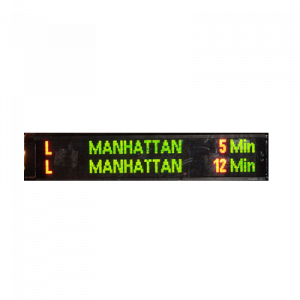New York City and its surroundings are home to millions of people, many of whom are working professionals. Some of these people face a dilemma: getting an MBA is the necessary ingredient to get them to the next stage of their careers, but their jobs, commutes, families, and other obligations make any kind of business education inconceivable.
That is where part-time MBA programs come in.
According to Sharon Lydon, executive director of MBA programs at Rutgers Business School, part-time MBA students "come from a variety of different backgrounds, and they're realizing that they need management skills or specific skills like finance to take them to the next level."
Isser Gallogly, assistant dean of MBA admissions at NYU's Stern School of Business, Stern's part-time program is generally for "people who like their industry, like their function, and are seeking the knowledge that an MBA program can provide them to do better and go further in their careers."
Fortunately, for these busy working professionals, there are locally available part-time and flexible MBA options in and around New York City that people can pursue while keeping their current jobs.
For example, students enrolled in Adelphi University's Robert B. Willumstad School of Business' G.O.A.L. MBA program take classes on Saturdays only. The classes run from 8:00am to 5:00pm, and students can complete the program in seventeen months. According to Adelphi's assistant dean Brian Rothschild, this program is designed for "working professionals who don't have the time during the week to do a traditional program."
Adelphi's campus is in Garden City on Long Island, east of New York City. Although many students in the G.O.A.L. program are from Long Island and other parts of the region, Manhattan's Penn Station is just a 35-minute train trip away.
Iona College's Hagan School of Business is about the same distance from New York City, but to the north, in New Rochelle. Iona offers a flexible MBA program where students can take evening classes, which usually run from 6:30 to 9:30pm. Each course meets one night a week, and students can take up to three classes per trimester (as well as up to two in the summer).
According to Charles Cante, Iona's MBA program director, this flexibility allows students to tailor their studies to fit their busy schedules.
"People mix and match a little bit, so they will accelerate periodically," says Cante, "or their companies tell them 'look, we'll be changing reimbursement policies, so get it done.'"
NYU Stern's Isser Gallogly also notes how the unpredictability of working professionals' lives has created a need for flexibility in Stern's part-time program. Students "might have a semester where they're very busy at work, or maybe they have a new baby," he says, "or they recently got a promotion," so their schedules can be adjusted accordingly.
Rutgers' Sharon Lydon agrees. She says that Rutgers students might find that their schedules change from semester to semester. To meet these evolving needs, Rutgers has recently adapted its traditional part-time program to be more flexible in terms of course delivery. In the redesigned program, students have the option of taking daytime, evening, or weekend classes, at one of Rutgers' four locations. And beyond that, the school has made some core MBA classes available in online format, which students can take at their convenience.
Rutgers' Newark campus is situated on the opposite side of the Hudson river from New York, and is easily accessible via public transportation: it takes about 20 minutes by train to get there from Penn Station. This convenience makes it ideal for those who live in Manhattan, but it also works for those who go the opposite way.
"It's very convenient for them," Lydon says of people who live in New Jersey, "when they're working in New York and they come back and it's on their commute home."
And of course, there are programs in New York City itself. NYU Stern's main campus is located in Washington Square, which is conveniently central for those who live and work in Manhattan. Isser Gallogly says that students in the Stern program can choose between night and weekend classes, and can adjust their schedules according to their needs. They also have the option of taking classes at NYU Stern's Westchester location, in Purchase, New York, which is about 30 miles north of Grand Central Station.
"We're trying to make it as easy as possible to work around their schedules and their geography and their needs," Gallogly says.
Even though most of Stern's students are from the region, its part-time program also draws people from further afield. Gallogly says that he regularly sees students from Philadelphia, parts of New Jersey, and even Washington, D.C., who drive in for weekend classes. Depending on how many classes a student takes at a time, the program can be completed in between two and six years; most students generally finish it in about three years.
According to Iona's Charles Cante, the flexibility of these part-time programs often brings together students with a huge variety of goals.
"We have lawyers who are retired from law and want to do something else," says Cante. "We have doctors who either are tired of medicine and want to get out, or they don't want to see patients anymore, and want to become chief medical officers of hospitals."
"Here in New York you have pretty much every industry," says Isser Gallogly, "whether it's finance or consulting, marketing or entertainment, luxury retail, pharmaceuticals, it really runs the gamut."
"We are as diverse as the industries in New York."
Photo: M. Filtz









